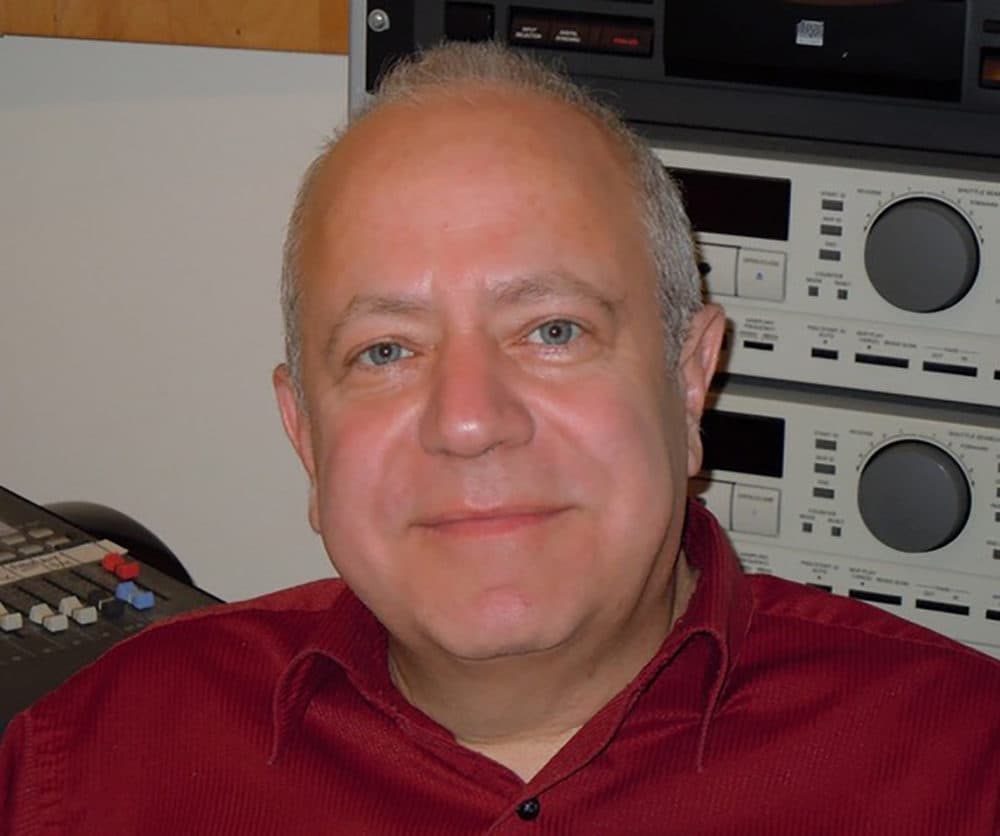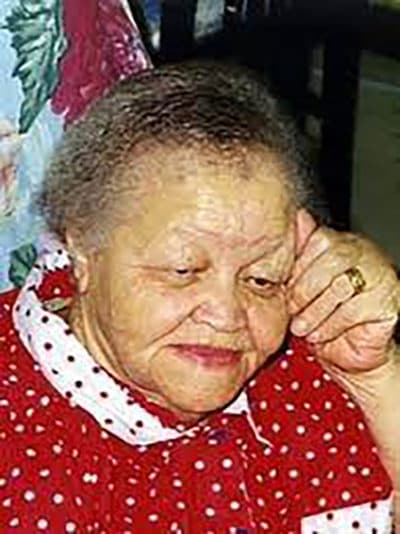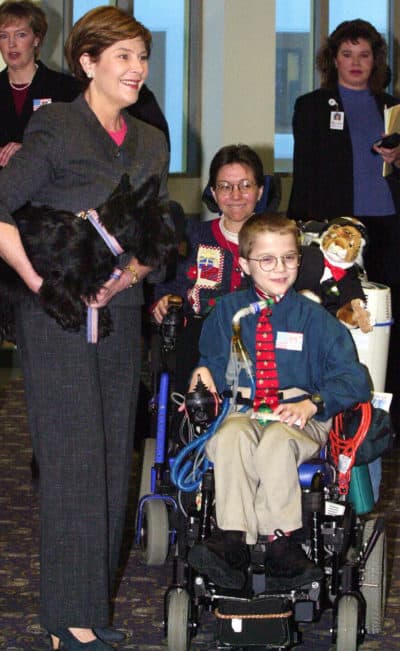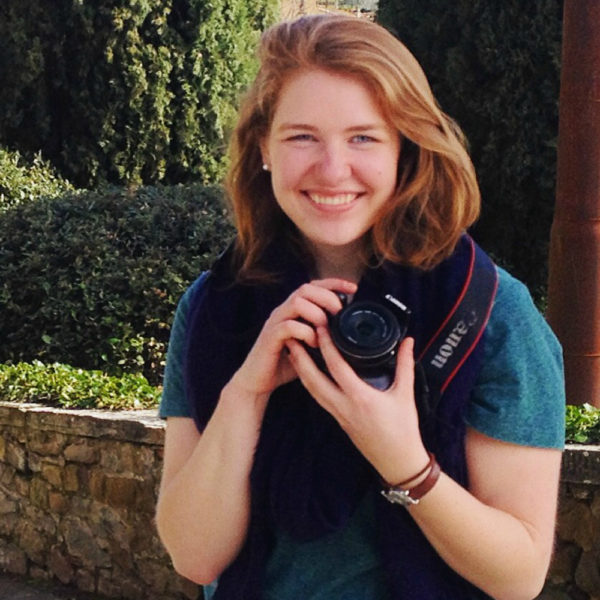Advertisement
Mass. radio journalist reflects on 50 years of exploring humanity
Resume
Fifty years ago today, at the age of 16, journalist David Freudberg filed his first story for NPR. Since then, he's made a career working for himself, interviewing everyone from the Dalai Lama to Muhammad Ali — and a 29-year-old Joe Biden, just after his election to the Senate.
About 25 years ago, Freudberg created a program that blossomed from his interest in the human spirit: Humankind. He produces and hosts the show from his studio in Belmont.
"How do we hold onto our humanity in these times of relentless change and daunting challenge?" he said, "because it's very easy to lose your sense of humanity at such moments, and I'm fascinated by people who are striving nevertheless to hold onto their humanity, despite all that."
WBUR's All Things Considered host Lisa Mullins met Freudberg when she was a college intern, and over the years they became colleagues and friends. She spoke with him about his long career, and some of the stories and people who defined his work. The following highlights include excerpts of those interviews.
Interview Highlights
Mae Bertha Carter (1998):

Freudberg interviewed Carter, a Black woman and former sharecropper in Mississippi, about enrolling her children in a previously all-white public school after the 1964 federal Civil Rights Act. A group attacked the family home when Carter refused to pull the application for her children to attend the school.
Carter: "[My husband] said, 'what are all those cars doing coming here?' And he could see the lights flashing all on the house, and then my husband said 'oh they're shooting out there, they're shooting' ... shots came in the window, on the porch, on top of the house.
"And that's when I say thank you, Lord, for taking care of my kids. We slept on the floor the rest of the night ... I was frightened, but I had trust in God."
Carter, who put 13 children through public school, died a year after giving this interview.
Jill Jackson Miller (1986):
Miller and her husband composed the famous song "Let There Be Peace On Earth," which became the unofficial anthem of the United Nations. Miller recalled visiting an interfaith, interracial workshop of teenagers who sang the song together.
Miller: "There was this feeling of true empathy and understanding and wanting to really find the way that life can be lived. And when they heard and sang this song for the first time in the mess hall, it took them over and it became their theme. They sang it in a circle, and they envisioned the world in a circle.
"It's like trying to describe what happens if 75 people toss pebbles into a lake. The ripples from each pebble is like a new movement. People need validation very much, then let it begin with me. Let there be peace on Earth, and let it begin with me.
Mattie Stepanek (2002):

Mattie Stepanek, just 11 years old during the interview, was a best-selling poet who's work "Heartsongs" evoked his optimistic approach to life despite the significant health challenges he faced. Stepanek had dysautonomic mitochondrial myopathy, a rare disorder that kept him in a wheelchair, and he needed a tracheotomy tube to breathe; all three of his siblings had died from the same disorder.
Stepanek: "Well I'm not the only disabled kid in the world; there's a lot of people, not just kids, that are sick in some way. And a lot of them are very sad about life, feeling down in the dumps. And I tell them, appreciate every moment of life, because even though you live forever in a better place after you die, you should enjoy life on Earth while it lasts.
"I get scared, sad ... even sometimes angry. But I don't dwell on it. I don't say 'I'm sick, my life is terrible, I can't run around and jump, I can't dive in the pool.' I'd rather say, 'I can't run around, but I sure as heck can roll around pretty good. I can't dive into the pool, but I can get a water gun and squirt people.' "
Stepanek died less than three years after giving this interview. He was just shy of 14.
Dr. James Gordon (2018):
Dr. James Gordon is a clinical professor of psychiatry and family medicine at Georgetown University Medical School in Washington. He works with people undergoing enormous personal distress. Freudberg spoke with him as part of the series "Listeners."
Gordon: "What I see is people who are often dispirited by the conditions that they're living through. So whether it's somebody who's dealing with the diagnosis of cancer or somebody who's been through a terrible collective tragedy like the hurricanes in Puerto Rico or the shootings in Broward County at Stoneman Douglas, they feel demoralized, dispirited. They have a sense that the rug of life has been pulled out from under them. They don't know who or what to trust and have faith in anymore ... 'Who am I? What can I count on anymore?'
Freudberg: "I think the answer to the very profound question he was posing that many people undergoing distress are asking themselves is, 'Am I alone? Have I been abandoned?'
I think the answer to that is to open oneself up to the universe, to the love that abounds in the universe that we see almost every day in various ways and various settings. And that love, it we avail ourselves of it, will take us home and light the way for us to get through whatever travail we're experiencing."
This segment aired on January 24, 2022.

